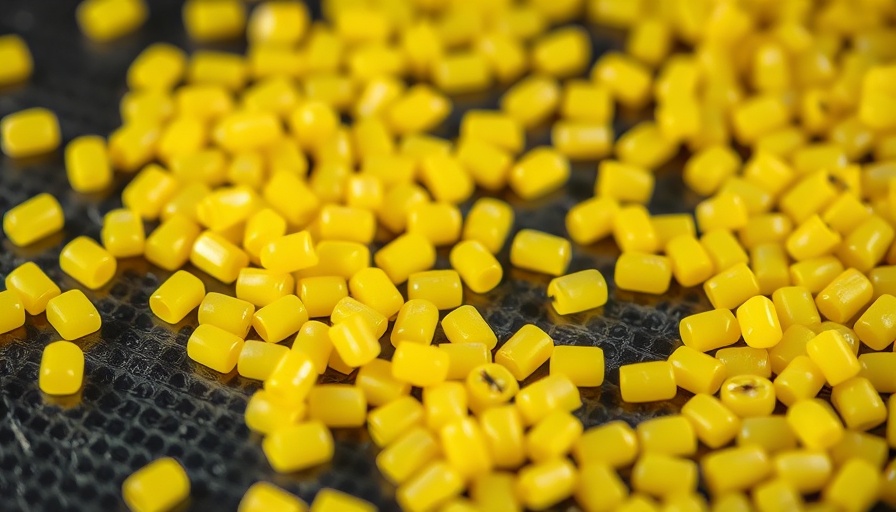
Unveiling the Hidden Dangers of Recycled Plastics
In our era of sustainability, the concept of recycling plastics appears to be a beacon of hope in combatting the growing plastic waste crisis. However, recent research from Norway sheds light on a concerning issue: recycled plastics can leach harmful chemicals into our water systems, potentially endangering both wildlife and human health.
What the Research Reveals
A striking study published by the University of Gothenburg highlights that a single pellet of recycled plastic can contain more than eighty different chemical compounds. Among these substances are well-known offenders like UV stabilizers and phthalates, which are commonly used in manufacturing plastics, as well as pesticides and pharmaceuticals that may contaminate the plastics during their initial use.
The Testing Process and Its Alarming Findings
The researchers conducted a key experiment by soaking plastic pellets in water for 48 hours before exposing zebrafish larvae to the contaminated water for five days. The results were revealing: significant alterations in fat and hormone regulation were observed in these fish, demonstrating the risks that leaching chemicals pose to living organisms. “The implications for physiology and health of these organisms are concerning and warrant closer scrutiny,” remarked Azora König Kardgar, the lead researcher on the ecotoxicology team.
Understanding the Risks of Hormone Disruption
The effects of these chemicals extend beyond aquatic life, as many are classified as endocrine disruptors—substances that can interfere with hormone functions in humans. Exposure has been linked to fertility complications, developmental issues in children, and other serious health concerns, including certain cancers and metabolic disorders like obesity and diabetes.
Barriers to Effective Recycling Initiatives
Despite the push for recycling as a solution to our plastic pollution crisis, the study’s findings underscore a significant obstacle. As noted by Bethanie Carney Almroth, a leading professor at the University of Gothenburg, the lack of transparency regarding chemical compositions in recycled plastics essentially renders them a potential hazard. The amalgamation of various chemical substances can result in toxic byproducts, complicating the assurance of safety in recycled products.
Global Action Against Plastic Pollution
As the world grapples with the growing plastic crisis, the upcoming UN summit in Geneva aims to address these pressing concerns. Experts urge negotiators to advocate for stricter regulations on hazardous chemicals in plastics, highlighting that such measures could improve safety in recycled products significantly. Enhancing transparency about additives is equally critical for fostering consumer trust and ensuring public health.
The Future of Plastic Recycling: A Quest for Solutions
The message from the latest research is clear: addressing chemical contamination must become a priority. As consumers increasingly demand sustainable and safe products, the industry must respond with rigorous testing and better practices. Innovations in recycling technology, stringent regulations, and enhanced consumer awareness will play crucial roles in creating a healthier relationship with plastics.
Take the Initiative: What You Can Do
As individuals, we hold the power to shape change. Embracing heightened awareness about our plastic consumption and advocating for sustainable products can help propel this dialogue forward. Opt for alternatives to plastics when possible, support brands that prioritize eco-friendly practices, and engage in community efforts aimed at educating others about plastic pollution. Every small step counts.
 Rij toevoegen
Rij toevoegen






 Rij toevoegen
Rij toevoegen



Write A Comment